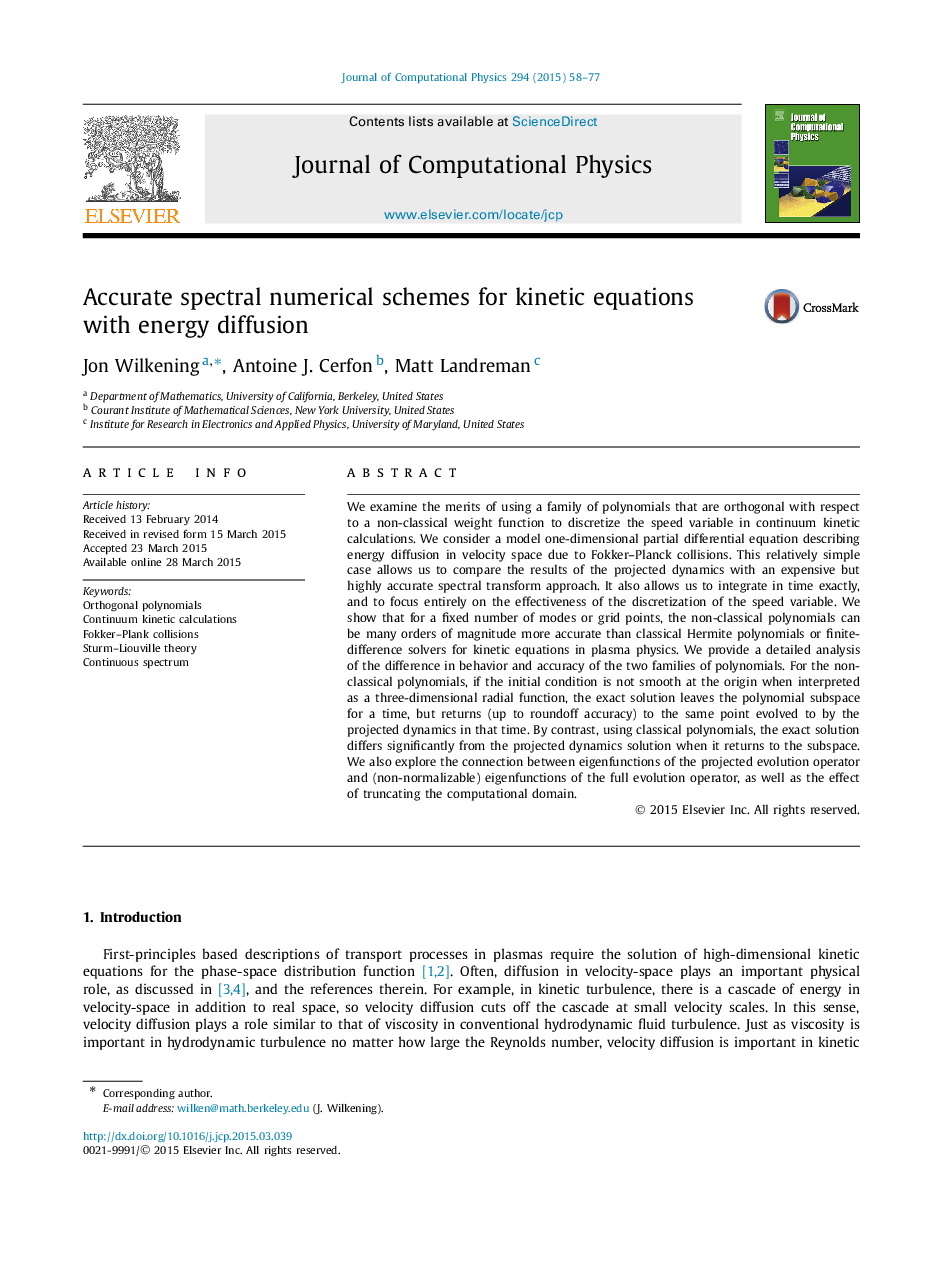| کد مقاله | کد نشریه | سال انتشار | مقاله انگلیسی | نسخه تمام متن |
|---|---|---|---|---|
| 519692 | 867679 | 2015 | 20 صفحه PDF | دانلود رایگان |
We examine the merits of using a family of polynomials that are orthogonal with respect to a non-classical weight function to discretize the speed variable in continuum kinetic calculations. We consider a model one-dimensional partial differential equation describing energy diffusion in velocity space due to Fokker–Planck collisions. This relatively simple case allows us to compare the results of the projected dynamics with an expensive but highly accurate spectral transform approach. It also allows us to integrate in time exactly, and to focus entirely on the effectiveness of the discretization of the speed variable. We show that for a fixed number of modes or grid points, the non-classical polynomials can be many orders of magnitude more accurate than classical Hermite polynomials or finite-difference solvers for kinetic equations in plasma physics. We provide a detailed analysis of the difference in behavior and accuracy of the two families of polynomials. For the non-classical polynomials, if the initial condition is not smooth at the origin when interpreted as a three-dimensional radial function, the exact solution leaves the polynomial subspace for a time, but returns (up to roundoff accuracy) to the same point evolved to by the projected dynamics in that time. By contrast, using classical polynomials, the exact solution differs significantly from the projected dynamics solution when it returns to the subspace. We also explore the connection between eigenfunctions of the projected evolution operator and (non-normalizable) eigenfunctions of the full evolution operator, as well as the effect of truncating the computational domain.
Journal: Journal of Computational Physics - Volume 294, 1 August 2015, Pages 58–77
